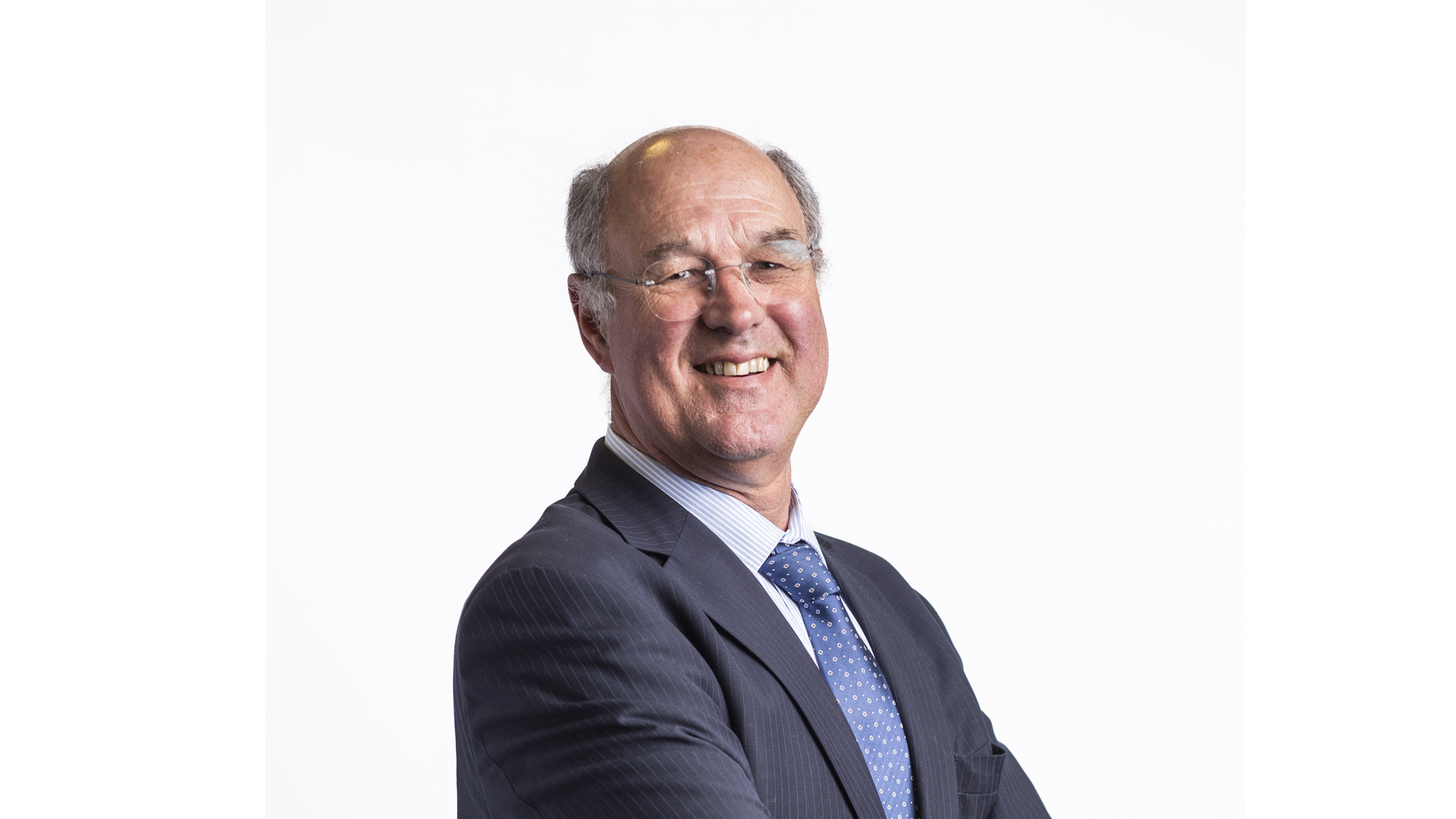

- Ben Poole
- Editorial Team, Treasury Management International (TMI)
My Life in Treasury: Francis De Roeck
Francis De Roeck has played a vital role in the European payments story, helping to create SEPA’s ISO 20022 messaging standard, the European Payments Council rule books, and BNP Paribas’ direct debit mandate management system, among many other initiatives. As he prepares to retire from the bank, De Roeck looks back on his career, discusses how curiosity is vital for innovation, and reveals his future plans to TMI.
Currently the Head of Industry Engagement for Payments, Global Cash Management, at BNP Paribas, De Roeck’s career in finance began after graduating from KU Leuven, Belgium’s oldest university, with a Master’s degree in commercial engineering. This combination of subjects meant that he could apply his talents to various professions after graduating. At that early age, there was only one career path he was sure he did not want to follow.
“My only certainty was that I would never work for a bank,” he smiles. Fortunately, that proved not to be the case. Fast-forward to 2024 and De Roeck is wrapping up a successful career in banking and payments, with the past 12 years spent with his current team.
Indeed, after beginning his career at an insurance company, it was only two years before De Roeck started working in the industry he had previously eschewed. He joined AGF Belgium Bank, a domestic savings institution that handled payments, deposits, and loans.
“What is handy in a small bank is that you see and do everything,” De Roeck reflects. “In the morning, I would see people encoding transactions, and then in the afternoon, I would work with the regulator to discuss something else. I saw the complete operations of a bank.”
De Roeck spent more than 17 years at the bank, rising to Chief Operations Officer (COO) during his time there. But when AGF Belgium Bank was sold to another bank in 2003 that already had a management team in place, he decided to explore the market for further opportunities. This led De Roeck to Fortis, where his first job was focused on cash management, but the task was not the process that treasurers are familiar with today.
“I was optimising the physical cash streams in the branches, the night vaults and ATMs, as well as enhancing the transport of cash,” he recalls. “It was cash management in a very literal sense.”
Getting the message
At Fortis, De Roeck had the opportunity to join a small Swift work group that was looking to create a new payment message for the nascent Single Euro Payments Area (SEPA). The message in question was SEPA’s ISO 20022 format.
“I’m accountable for 20% of this message,” states De Roeck. “It was nice developing something completely new, and this led to many other opportunities in payments.”
Knowing the SEPA messages led to De Roeck’s involvement in various ambitious industry payment projects. These include the first SEPA scheme rule books issued by the European Payments Council (EPC), sitting on its Payments Scheme Board, and assisting with the creation of the EBA Clearing STEP2 platform, specifically on the product management side. As industry initiatives became more innovative in terms of what could be achieved in the payments sphere, specific banks also seized the moment to embrace this change.
“When the SEPA story started to grow, BNP Paribas [Fortis at that time] decided to reorganise its payment engines accordingly,” notes De Roeck.
The bank took a risk by choosing to build entirely new payment engines rather than recycle processes from old schemes for this new world, but it paid off.
“It was an excellent idea to build everything new and in-house, as it generated a huge amount of knowledge and expertise in the bank, which led BNP Paribas to be a very important player in the SEPA market,” he adds.
During this time, De Roeck worked on the network activity between the bank, the EPC, the European Central Bank (ECB), and the relevant clearing houses, which gave him fantastic visibility at the European payments level.
“Banking, and certainly payments and cash management, is a networking business,” affirms De Roeck. “The better the quality of your network and contacts, the better job you can do as an operator to help shape these schemes and models towards what is best for your clients. What is good for your bank is good for other banks too.”
The advent of SEPA has changed how corporate treasurers conduct business in Europe. But to begin with, De Roeck notes that many corporates needed some convincing to change their approach to payment management.
“Initially, corporates saw SEPA as a cost; they already had a system that worked, so some could not understand why they should change it,” he recalls. “This was hard for some treasurers, as they often don’t have access to the core investment budget. So, when it came to switching over to the new format and updating their ERPs, they were not immediately seeing the direct benefits of this.”
However, the opportunities became clearer once businesses became SEPA compliant. “Treasurers could see how they could start optimising their processes,” enthuses De Roeck. “This led to considerable interest in IHB structures and payment and collection factories for POBO and COBO.”
Lead with imagination
Having had such an impactful career in the payments world, De Roeck has some core pieces of advice for treasurers and other financial professionals to help them make the most of their working lives. For example, he is a huge advocate of people having in-depth knowledge of the subjects that impact their role, reading about and around a subject, and documenting their ideas and innovations. When it comes to developing a professional network, he advises not to keep it purely for yourself.
“You won’t become better that way,” De Roeck declares. “Use your professional network to share learnings and connections with your peers.”
Speaking to De Roeck, it is clear how passionate he is about payments and financial services, specifically for the ideas that drive innovation in this space.
“When it comes to ideas, I think of that famous Nike slogan, ‘Just Do It’”, he posits. “Take the initiative, particularly where there is potential to go beyond what is expected of you. If you’re curious, you will discover things you didn’t expect, and you can use these insights to improve your product.”
De Roeck provides several examples from his career that highlight this approach, but one simple yet powerful one stands out: the inclusion of direct debits in the SEPA schemes that were developed.
“Some might see direct debits as an old-fashioned product, but every year there are more and more direct debit transactions, so they are not that old-fashioned,” he chuckles. There is very good money flowing through direct debits because corporates like them.”
A key reason why corporates embrace direct debits is that they have an extremely high checkout ratio when they send the file.
“Corporates send the file and then receive 98% of their money on the day they want,” enthuses De Roeck. “That’s tremendous. There is no other payment product doing this.”
With that level of efficiency, it was no surprise that corporates welcomed the direct debit tool in the new SEPA schemes. However, De Roeck’s curiosity led him to identify an area that may have been overlooked and could be improved to assist corporates further.
“It occurred to me that what corporates might miss in the SEPA direct debit scheme is a good mandate management system that could help them in setting up these direct debits efficiently,” he reflects. “I suggested within BNP Paribas that we could help corporates if we could set up such a system.”
De Roeck received the go-ahead to develop his idea, and the bank was able to establish the very first system for managing direct debit mandates in SEPA, which has evolved into one of its major products.
“Today, we have a complete mandate management system that integrates the client’s invoices,” De Roeck says. “The client just gives us the raw material, we put the invoice together, create the mandate, and essentially do the whole thing. That all came about from one idea being raised.”
This experience on direct debits allowed De Roeck some years later to co-chair a work group at the ECB on e-mandates. Another more recent example of his work is on the article regarding sanctions screening in the new Instant Payments Regulation (IPR).
“Nobody is against sanctions screening, but the current way of screening transaction data leads to a high number of rejects,” explains De Roeck. “This high percentage of hits, which are mostly false positives, can’t be analysed within 10 seconds.”
De Roeck leapt into action on several fronts to bring about change. He convinced the EPC Board to write a letter to the Commission, gave a presentation himself at the ECB, discussed a proposal with the Commission and also supported the EBF in its comments on the draft regulation.
“The new screening concept is now part of the IPR,” he reflects. “Currently, it is still limited to instant payments and European lists, but it is a crucial step for the future evolution of sanctions screening.”
The approach of voicing ideas and insights to create or improve products has worked so well for De Roeck throughout his career that he is keen to encourage others to adopt a similar approach.
“My advice for corporate treasurers is, if you have ideas, use them, bring them to the table in meetings,” he says with passion. “If you think you can make things more efficient or save costs, share how you’d go about it and in what timeline you think the benefits could be realised.”
This outlook again connects with his idea of using the professional network as a resource. Peers will often be happy to act as a sounding board for new ideas.
“If you respectfully present your questions to your network after having documented your thoughts on the subject, you will receive answers and feedback from them that can confirm your thoughts or even help to expand them,” De Roeck adds.
Tapping into a wealth of information
One of the key advantages of the ISO 20022 payment message is the rich data the extended data fields allow. For example, the remittance information field is 140 characters long. This could prove to be a considerable advantage to treasurers in gaining visibility and understanding of cash flow. However, all intermediaries must take advantage of the larger fields to support this, which some have yet to do.
“I could say this about many countries, but when I look for example at the French corporates, their old credit transfer bank format had 31 characters for remittance information,” notes De Roeck. “Some still use 31 characters in the ISO format, so they are missing the opportunity.”
One example is the reject codes that banks use in ISO 20022 to explain why a transaction has been refused. “These codes, if they are used in the message, can help corporates optimise their processes,” adds De Roeck.
The transition to the ISO 20022 format will give treasurers access to a wealth of rich operational information that could be used to optimise the business. De Roeck is highly enthusiastic about the opportunities this will create for treasurers who want to take advantage of the development.
“The treasurer’s ability to see across the business – who pays who for what, and when – is amplified by the rich ISO formats,” he underlines. “Treasurers can just use ISO 20022 to see how much is in their account and reconcile payments more easily, but there is so much more information that could be used to improve the company’s overall P&L.”
Instant opportunities
The latest part of the SEPA project being launched is instant payments, which, in time, will add another level of efficiency to payment management. Instant payments offer three crucial features. They function 24/7 without cut-off times, so payments can be processed continuously if required. Instant payments also have settlement finality, so when the transaction has been credited to the beneficiary’s account, it cannot be recalled. Finally, the EU has agreed that an instant payment should take no longer than 10 seconds to arrive in the beneficiary’s account.
“The 24/7 nature of instant payments and the settlement finality are the most important aspects for treasurers,” asserts De Roeck. “These completely new aspects of payments in Europe put the treasurer in the lead; they can make their outgoing payments arrive whenever they want.”
When it comes to regular payments such as employee salaries, the treasurer could programme the funds to arrive in company employees’ accounts at 7am on the first day of the month, regardless of whether that day is a Sunday or a public holiday.
Furthermore, the ability to continuously process instant payments will profoundly impact the future of payments. Today, the selling party in a transaction generates an invoice and the payment is made later as a completely separate flow. But with continuous processing, these two flows can be integrated, and the payment can be directly triggered by an RTP.
“This should lead to payments integrating into the economic cycle so completely that they effectively disappear,” states De Roeck. “Fintechs and open banking will help drive this, and banks will join, too, so that it will be even faster and better. Treasurers will see that type of evolution in the coming years.”
Fair winds and following seas
With his very well-earned retirement now in sight, De Roeck is looking forward to indulging in some of his other passions, besides payments.
“I sail dinghy boats frequently, including in competition where five years ago we even participated in the world championship in Montreal and ranked 10th in the world,” he smiles. “That is a big passion – I am president of a sailing club, and we have a sailing school that teaches 150 children each year.”
In addition to competing on the high seas, De Roeck is also a fan of taking to the air, and he has a clear goal in that regard.
“I love going up in a glider, but at the moment I fly in a two-seater because I’ve never had time to gain the licence,” he reflects. “Hopefully, I can now focus on that.”
With three children and six grandchildren, De Roeck will also have more time to spend with the family. And he still plans to maintain some contact with the financial services world. He intends to run courses so he can share his knowledge of and passion for payments with the next generation. And that is not the only influence that De Roeck will have on the world of payments in the years to come.
“After many requests to the EPC Scheme Board, it finally created a work group to explore how to future-proof the SEPA payment schemes,” he explains. “The final report has been delivered, but, crucially, the missing pieces and links I observed in SEPA and through communication with treasurers will, in future, be picked up in these schemes.”
While this development came at the end of De Roeck’s career, his influential status within the European payments landscape meant he was appointed to chair the work group.
“I’m happy it was finally set up,” he adds. “Even after leaving the scene, I will indirectly still help to shape part of the future payments landscape.”
Meanwhile, De Roeck’s legacy at BNP Paribas will thrive over the coming years and not only thanks to his years of service developing innovative payments products. The bank’s Cash Management Competence Centre has started a gardening club, which has named him chairman for life. “My first plant is a banana plant,” he grins.
De Roeck has created an indelible legacy in the European payments arena, driven by a passion for the subject and a curious mind to explore what is possible.



